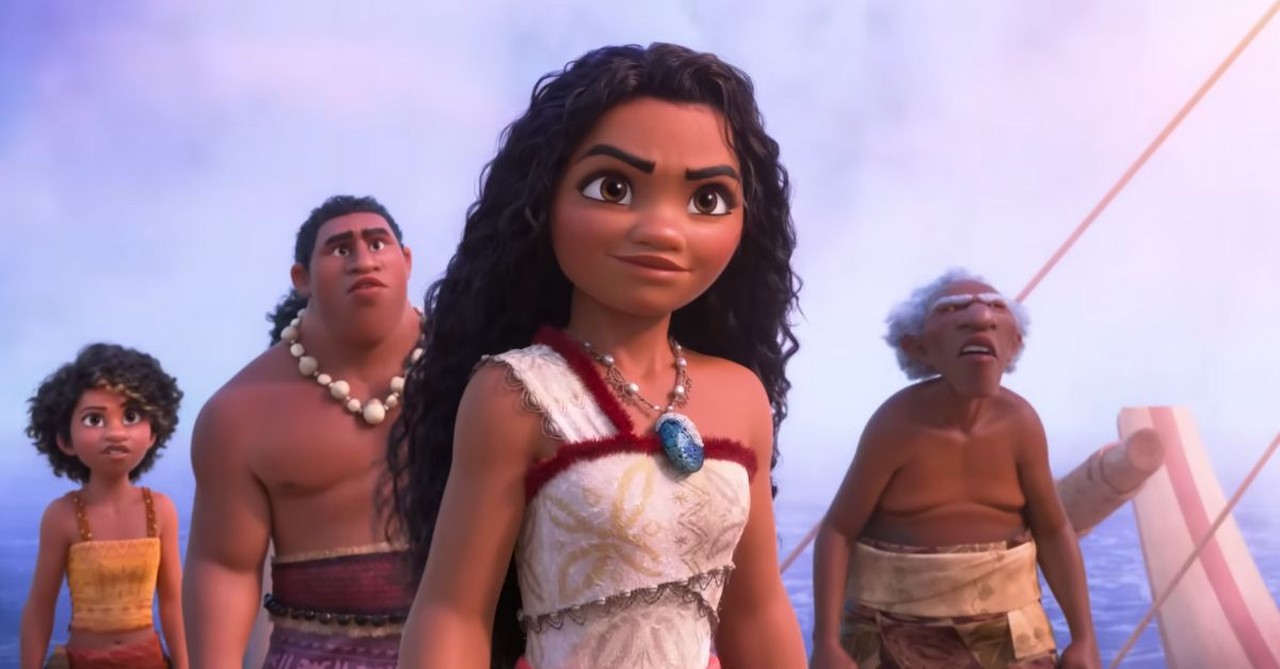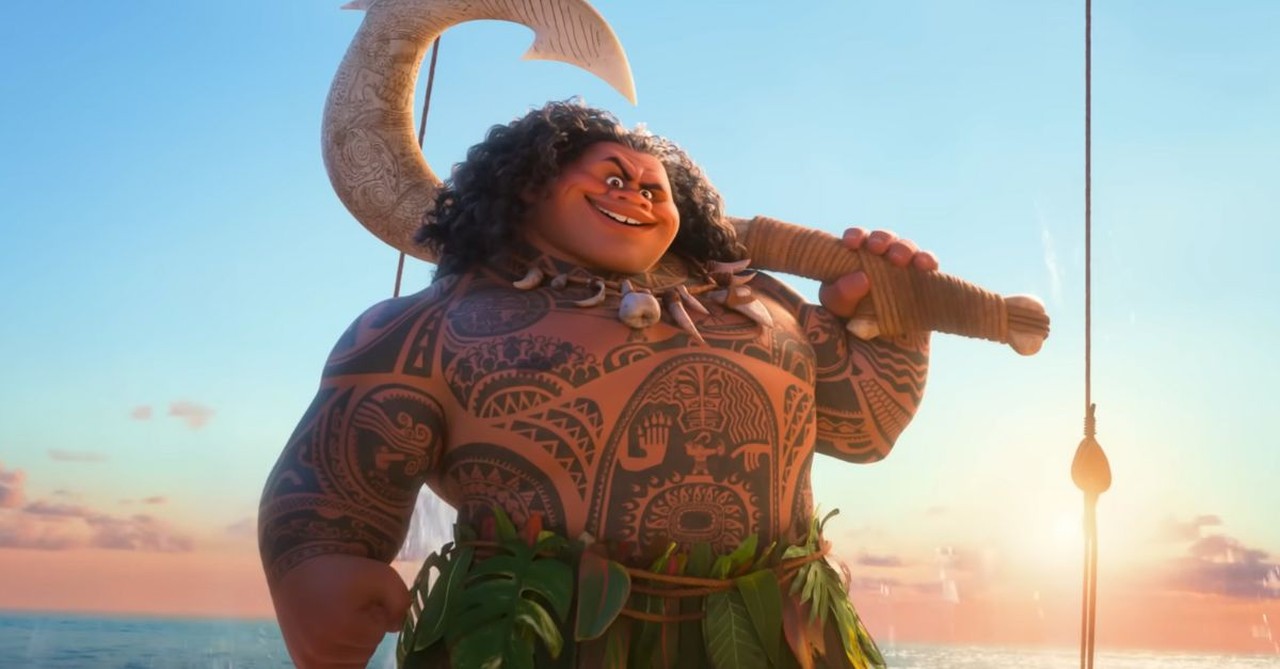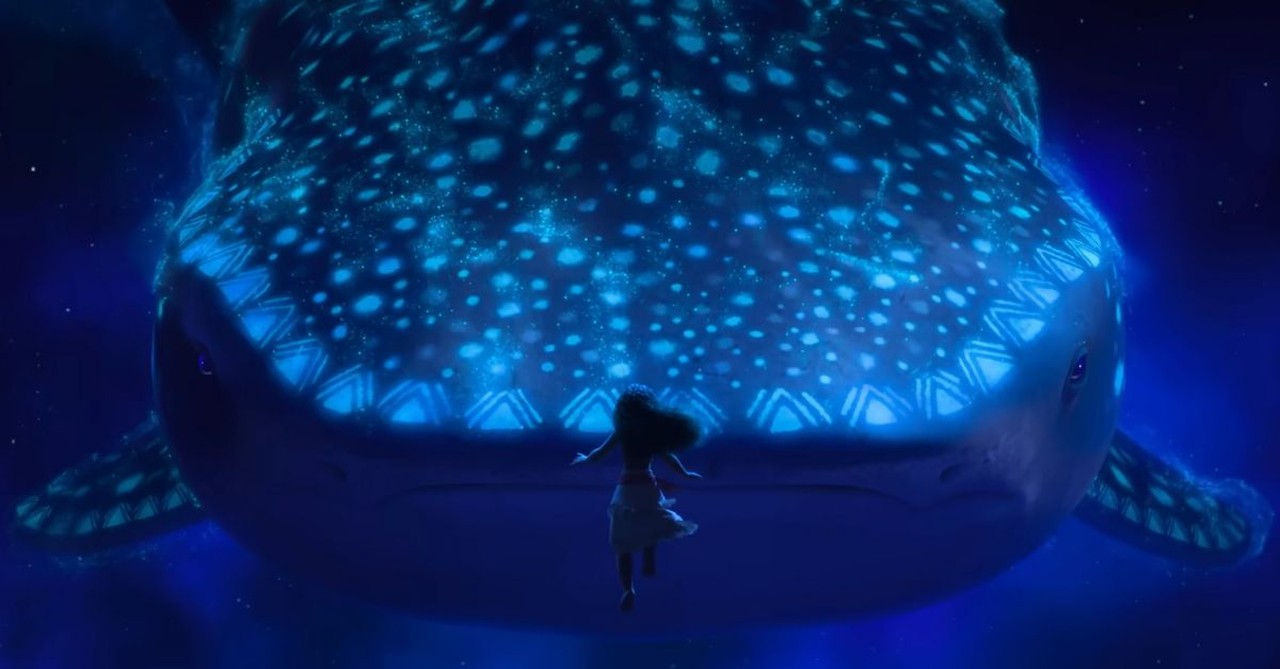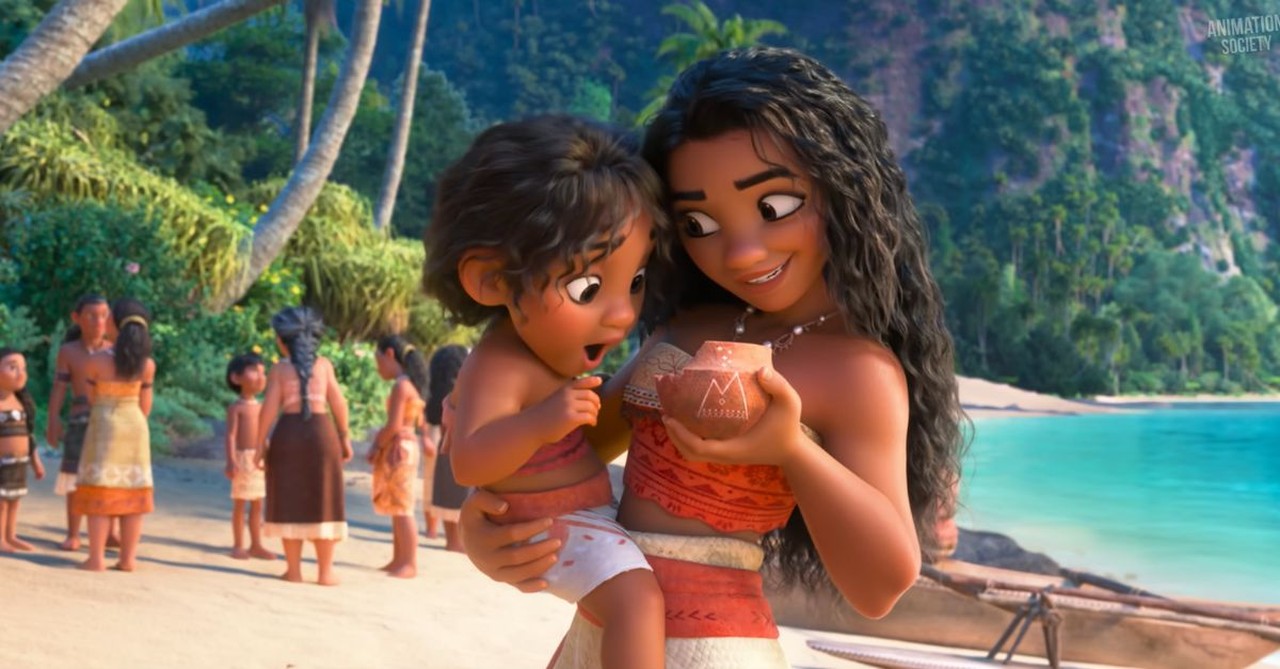3 Things Parents Should Know before Watching ‘Moana 2’

Moana is a courageous teenage girl with a gift for adventure and an unyielding drive to explore the unknown.
Yet on her small Pacific island of Motunui, the unknown is, well, unimaginable. Moana and her people have never seen other civilizations. They've also never dared to set sail beyond the reef. It's too dangerous. To some, it's even forbidden.
"There's got to be other people," she says one day while scanning the sea's horizon atop a massive hill.
Then, one day, Moana catches a break. She uncovers ancient pottery in a remote section of her island bearing mysterious symbols. It's unlike anything she's ever seen. It is, she believes, proof that her people aren't the only civilization to have thrived in the ocean.
Moana digs into her people's past and uncovers a story previously untold: Long ago, the peoples of the oceans were connected as one, only to be separated by a power-hungry god, Nalo, who sought to weaken the ocean-dwellers.
Moana learns something else: A secret, remote island named Motufetu was the key to uniting her people until Nalo cursed it -- seemingly erasing it from existence. But there's an even darker revelation: If Motufetu is not soon found, the people of Motunui will face certain extinction.
"We've got to come together," she says.
Moana sets out to sea.
Will she find the legendary island?
The new Disney musical Moana 2 (PG) follows this courageous teen's story.
Here are three things parents should know about it.
(Warning: spoilers ahead.)
Photo Credit: ©YouTube/Walt Disney Animation Studios
1. It's the Sequel to a Blockbuster

1. It's the Sequel to a Blockbuster
SLIDE 1 OF 3
This newest movie is the sequel to 2016's Moana, which took in $248 million domestically and was the 13th highest grossing movie that year. It also was nominated for two Oscars (Best Animated Film and Original Song).
The first film followed the story of a younger Moana, who lives on a once-abundant island that no longer provides for the people. Suddenly, the fishermen can no longer catch fish, and the coconut trees fail to produce edible fruit. As the daughter of the island chief, Moana takes it upon herself to set sail across the ocean in search of the demigod Maui (voiced by Dwayne Johnson), master of the wind and sea. Her mission? To restore the heart of the island goddess Te Fiti, which, according to her grandmother, Maui once stole. If Te Fiti's heart is returned, the island's abundance could be restored, bringing fish and fruit back to her people.
Photo Credit: ©YouTube/Walt Disney Animation Studios
2. It Includes Worldviews that Christian Parents Might Want to Discuss

2. It Includes Worldviews that Christian Parents Might Want to Discuss
SLIDE 2 OF 3
Moana 2 is set in a Polynesian culture and offers a strong Polynesian worldview, with a pantheon of deities, as well as a spiritual connection to ancestors and to nature, too. This religious framework is the heart of the plot in both films.
In the film's opening moments, Moana spots a comet in the sky, believing it's a sign from her ancestors to journey across the ocean. She then talks to her deceased grandmother (think: deceased Obi-Wan in the Star Wars films), who promises her granddaughter guidance and courage on her voyage.
The film depicts Moana as both symbolically and literally connected to the ocean. When she enters the shore, the water parts. When she talks to it, it reacts. It even forms a wave that offers her a fist bump.
Moana sets off on her voyage and once again encounters the demigod Maui, who warns her that Motufetu can only be lifted from the ocean's floor by a demigod and that others have died trying. And true to Maui's caution, Moana faces a harrowing moment when she drowns during her effort to save the island. Don't worry, though: Her deceased ancestors come to her rescue, bringing her back to life. Moana then lifts the island. She also transforms into a demigod. (As evidenced by her tattoos on her left arm -- similar to Maui's tattoos.) "You leveled up." Maui tells her.
Moana 2, like its predecessor, will spark varying responses from Christian families. Some will outright reject it due to its worldview, while others may enjoy it for its humor and catchy tunes. Either way, Christian parents must remain mindful that children will not automatically reject unbiblical worldviews on their own -- they must be thoughtfully taught to discern truth through the lens of Scripture. Unlike say, Toy Story, the worldview presented in Moana reflects beliefs and traditions held by real cultures in our world. It's our role as parents to engage with our children.
Photo Credit: ©YouTube/Walt Disney Animation Studios
3. It Offers Powerful Music and a Few Good Lessons

3. It Offers Powerful Music and a Few Good Lessons
SLIDE 3 OF 3
The music in Moana 2 is not as groundbreaking as its predecessor, but nevertheless, powerful. Abigail Barlow and Emily Bear, known for their innovative compositions, wrote the film's soundtrack, infusing it with a fresh yet emotional energy that complements the story. (Lin-Manuel Miranda wrote the music for the 2016 movie.)
The movie offers parents and children alike solid lessons on unity and togetherness. It also reminds us to honor and celebrate our past.
Moana 2 isn't as fun as the first one, but fans of the story likely will enjoy it.
Rated PG for action/peril.
Entertainment rating: 3 out of 5 stars.
Family-friendly rating: 4 out of 5 stars.
Photo Credit: ©YouTube/Animation Society
Michael Foust has covered the intersection of faith and news for 20 years. His stories have appeared in Baptist Press, Christianity Today, The Christian Post, the Leaf-Chronicle, the Toronto Star and the Knoxville News-Sentinel.
Listen to Michael's Podcast! He is the host of Crosswalk Talk, a podcast where he talks with Christian movie stars, musicians, directors, and more. Hear how famous Christian figures keep their faith a priority in Hollywood and discover the best Christian movies, books, television, and other entertainment. You can find Crosswalk Talk on LifeAudio.com, or subscribe on Apple or Spotify so you never miss an interview that will be sure to encourage your faith.
Originally published December 09, 2024.









